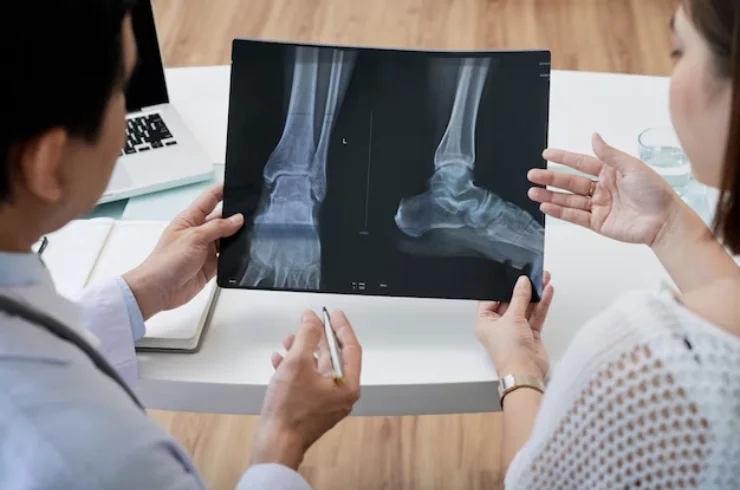Histopathology

Histopathology is the branch of pathology that deals with the microscopic examination of tissue samples to diagnose diseases and conditions. It involves studying the structure and composition of tissues at the cellular level after they have been processed, stained, and mounted on slides. Histopathology plays a critical role in identifying the nature of diseases, particularly cancers, infections, and inflammatory conditions, and is essential for guiding clinical treatment.
Tissue Processing and Staining: After obtaining the biopsy, the tissue sample is processed to preserve its structure and make it suitable for examination under a microscope. This includes:
- Fixation: The tissue is preserved by immersion in a fixing agent, usually formalin, to prevent decomposition and maintain cellular architecture.
Microscopic Examination: The stained tissue sections are examined under a microscope by a histopathologist. They look for:
- Cellular Morphology: Abnormalities in cell shape, size, and arrangement that might indicate disease.
- Tissue Architecture: Alterations in tissue structure, such as disorganized growth or the presence of tumors.
- Signs of Inflammation or Infection: Evidence of immune response, infection, or tissue damage.
- Cancer Diagnosis: Identification of malignant cells, their grade (degree of abnormality), and stage (extent of spread) is a key role of histopathology, particularly in cancer care.
Histopathological Diagnosis: Histopathology is critical in diagnosing a wide range of conditions, including:
- Cancer: Histopathology is the gold standard for diagnosing malignancies, determining tumor type, grade, and stage, and guiding treatment decisions (e.g., surgery, chemotherapy, radiation therapy).
- Inflammatory Diseases: Conditions like rheumatoid arthritis, infections, and autoimmune diseases can be diagnosed by examining tissue damage and immune responses in tissues.
- Infections: Certain infections, such as tuberculosis or fungal infections, can be diagnosed by identifying the causative organisms in tissues.
- Degenerative and Metabolic Diseases: Conditions affecting organs like the liver, kidney, and heart can be diagnosed by changes in tissue structure and cell function.
Applications in Personalized Medicine: Histopathological analysis helps in the development of personalized treatment plans, particularly in oncology. For example, knowing the molecular characteristics of a tumor (such as hormone receptor status in breast cancer) allows doctors to tailor therapies like targeted treatments, immunotherapy, or chemotherapy based on the specific pathology of the tumor.
Advanced Techniques: Modern histopathology includes additional advanced techniques to enhance diagnostic accuracy, such as:
- Immunohistochemistry (IHC): This technique uses antibodies to detect specific proteins in tissue samples, aiding in identifying tumor markers and distinguishing between types of cancer.
- Molecular Pathology: Genetic testing and the analysis of DNA/RNA are increasingly being incorporated to assess mutations, gene expression, and other molecular features relevant to diagnosis and prognosis.
- Electron Microscopy: Provides high-resolution images of cellular structures, used for certain specialized conditions.
Importance of Histopathology:
Histopathology is indispensable for:
- Accurate Diagnosis: It provides definitive diagnoses for many conditions, particularly cancers, where early detection and correct classification are essential for treatment.
- Prognosis and Treatment Decisions: The findings from histopathological analysis can influence the staging, grading, and selection of the most appropriate treatment plan.
- Monitoring Disease Progression: In chronic conditions like infections, autoimmune diseases, or cancers, histopathology helps track the disease’s progression or response to treatment.
In summary, histopathology is a cornerstone of modern medicine, providing invaluable insights into disease mechanisms and helping guide patient management, especially in cancer and inflammatory conditions.




